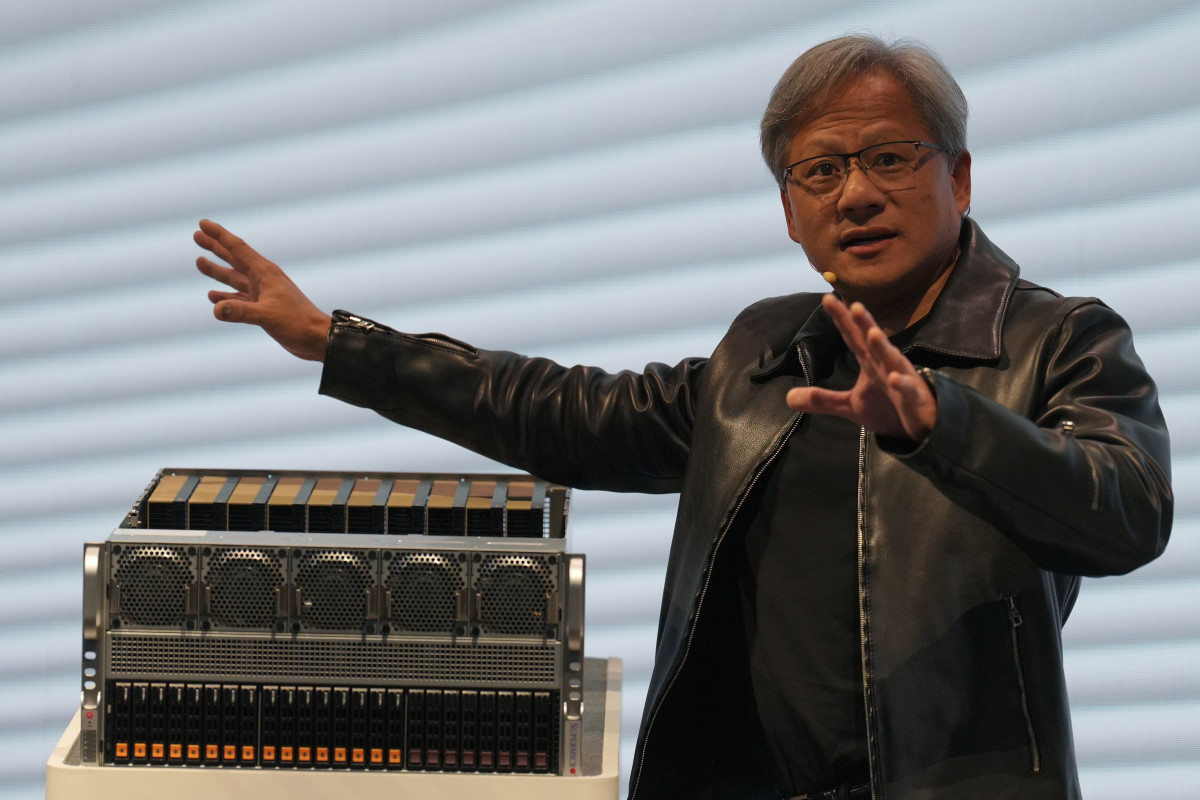
Nvidia shares went on a roller coaster ride earlier this week. Shares fell on a report that China was telling local developers of artificial intelligence applications to use only Chinese-made chips in their products.
Don't miss the move: Subscribe to TheStreet's free daily newsletter
That's bad news because China is an important market for Nvidia (NVDA) products. Sales to China totaled $6.1 billion, about 11% of its first-half revenue.
But as the story's intensity seemed to wane, Nvidia recovered its losses, finishing September up 1.7% and the third quarter down 1.7%. They have fallen 13.7% from their 52-week high of $140.76, reached on June 20.
Yet, Nvidia shares were still up 145.2% year-to-date, the second-best S&P 500 gainer in 2024 after energy company Vistra's (VST) 207.7% gain. That's a mighty return, but Nvidia had risen as much as 184% in early 2024.
The stock has fallen back as much of the frothiness in many technology and chip stocks has dissolved.

Nvidia's faces complicated China headwind
The U.S. relationship with the People's Republic of China is, in fact, complicated. Both are economic giants that have embarked on new rounds of stimulus.
More AI Stocks:
- Apple stock slides as big iPhone 16 bet sputters
- Analyst revisits Meta stock price target as Facebook parent ramps AI spend
- Analyst reviews BlackRock stock rating after AI partnership with Microsoft
Nvidia is forbidden to sell its most powerful products, including the H100 graphics-processing units, to China under a 2022 Biden administration order.
The administration, like the Trump administration, has regarded China's interest in American technology with suspicion.
Meanwhile, the Chinese government wants to support its sophisticated and rapidly growing technology sector. It has a very visible interest in taking control of everything in the South China Sea, with Taiwan as a big focal point.
Nvidia is allowed to sell its less powerful products in China, though.
Nvidia products easily find their way to China
Despite the export bans, Nvidia's chips and powerful GPUs, particularly the H100 GPUs, are reaching the Chinese mainland. Demand for Nvidia's next-generation Blackwell chips, which haven't been released yet, is huge.
The Wall Street Journal and The New York Times have documented how active networks of players are engaged in obtaining Nvidia's most powerful GPUs and shipping them to China.
The means can be as easy as forming companies outside China that will buy and ship the GPUs to the mainland. Or maybe a Chinese student in Singapore going home on vacation sticks some units in a suitcase that doesn't get a close inspection.
Or a company will be organized to build data centers outside China that use Nvidia chips and products and make their computing power available to customers on the mainland. There are even distributors who advertise online that they can get the chips, but it's unclear how they get their supplies.
Nvidia typically sells its GPUs and related products to other companies, such as Dell Technologies (DELL) , which installs them in server computers and related products.
The traffic flow of products and services may be only a stopgap since China supports home-grown companies that can produce chips that do what Nvidia's products can.
Bytedance, the parent of TikTok, is planning to develop an AI capability with chips from Huawei Technologies, the Chinese tech giant that is now the world's largest smartphone maker, Reuters reported.
We may not have heard the end of this story, or seen the last of how it may impact Nvidia's stock price.
Related: The 10 best investing books, according to our stock market pros







